Women and men crowded into the 2014 Women in Aviation International 25th Conference. This international event gives pilots and aviation specialists the opportunity to interface with industry and meet those with similar careers and interests. Daughters of members also had their own day to visit and be introduced to the aviation field. Did you know only 6% of the pilots flying for airlines are women? Why? That’s a good question and one seriously being considered on many levels, but I can happily answer it is not for lack of talented, adventurous, intelligent women who want to fly, and the men I encountered at the convention were more than encouraging. A Washington Times article mentions that the percentage of women flying in the military are 2% Air Force, 1% Marine Corps, 4% Navy, and there are 513 Army female helicopter pilots.
With a camera and limited time to meet, chat, and photograph attendees, I focused on pilots wearing a distinguishable type uniform…a military flight suit. While these Nomex (flame resistant) suits can look the same, they vary by the attached nametags and patches indicating the pilot’s service, command, and squadron.
Barely outside the registration door, I noticed a friendly United States Coast Guard group. They had white nametags with the familiar Coast Guard orange stripe across them. For more information on the aircraft they fly, check out these links about the MH-65 Dolphin Rescue helicopter, the T-6 Texan II, and the USCG C-130 “Hercules”. The Coast Guard pilots below come from Air Station Barbers Point, Hawaii; Hitron-Jacksonville, Florida, and NAS Whiting Field Milton, Florida.
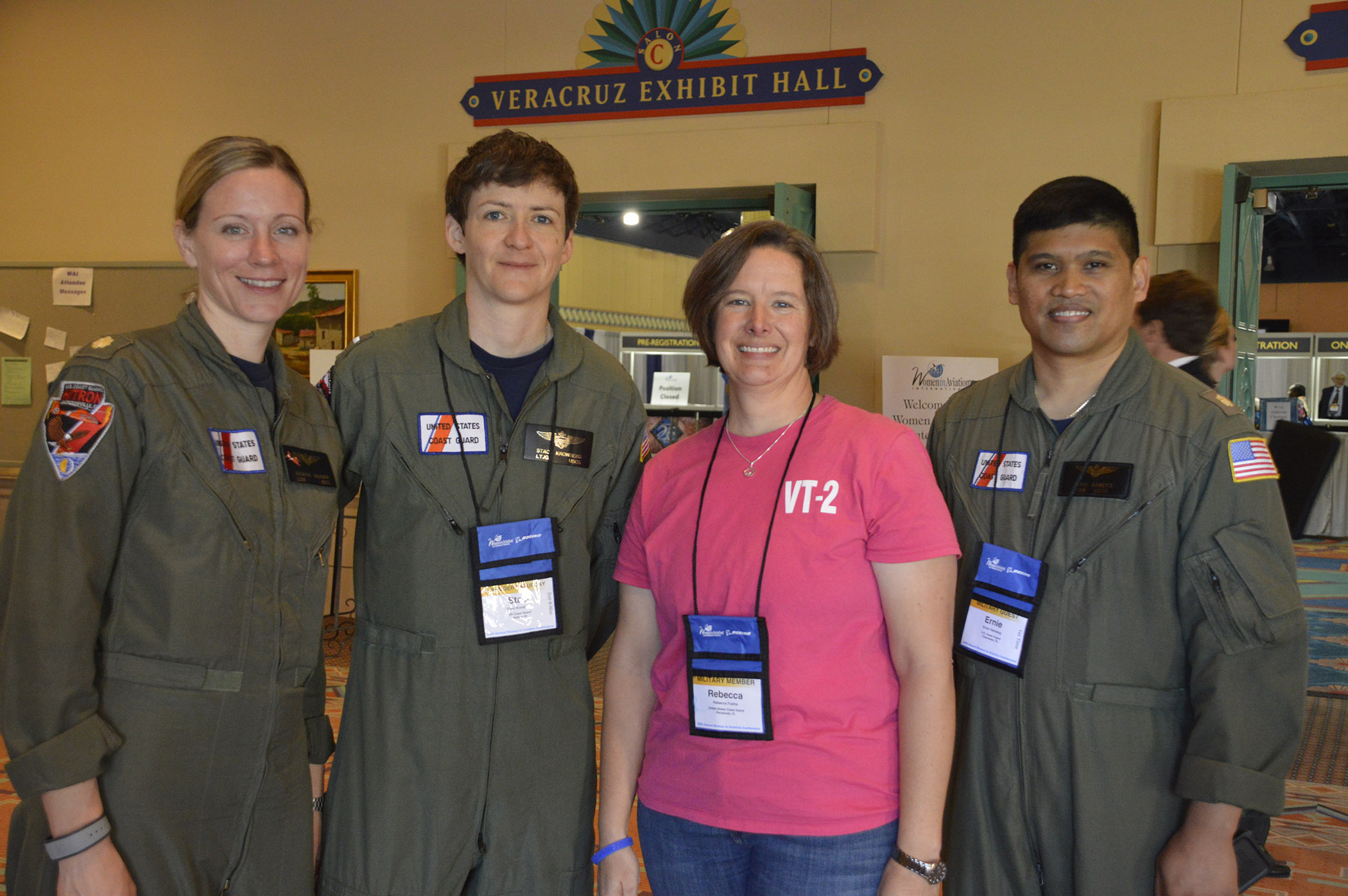
The two pilots below were manning the Whirly Girls booth. LT Andrea Giuliano works in the United States Navy Helicopter Sea Combat Squadron TWO FIVE, nick-named the “Island Knights.” She flies the MH-60s and is transitioning to TH-57 (Bell 206) at the Heltraron Eight Squadron. The LT on the right flew MH-60s at HSC-25 squadron based at Andersen Air Force Base, Guam, and now flies TH-57 Sea Ranger in the “Eightballers” squadron at NAS Whiting Field, Milton, FL. LT Giuliano passed along this photo taken in Guam of the MH-60 and fellow females in the squadron.
The Whirly Girls are “a support network for pilots and provide a variety of scholarships to women for helicopter training.” If Sarah and Andrea are an example of the members, then they are a supportive and friendly group. If interested in flying helicopters or making contacts, check the organization out at Whirly Girls.
The next stop was by the 99s booth (an organization of women pilots which promotes the advancement of aviation) where I met 99s and Air Force MAJs Sarah Eccles and Laura Nealon (pictured above). They fly the U2 Dragon Lady, a high altitude reconnaissance aircraft. Both said they love their job and the unique aircraft. The U2 is the only current aircraft in the Air Force inventory that requires the wearing of a pressure suit when flying. For pilots who like a challenge, the U2 has “bicycle” gear and a support vehicle to assist in landings. Check out this Photo Gallery that shows many aspects related to flying the U2. Below is a closer look at their unit patch.
Also at the 99s booth, I met the current president Martha Phillips from the Ventura County chapter. She convinced me to join the 99s at last years convention by promising me members could use the 99s hut at the Sun-N-Fun fly-in to cool off and use the restroom. Needless to say, it was an easy sell. For more information on the Ninety-Nines formed back in 1929, check out their website.
Nagin Cox, an engineer at NASA JPL Propulsion Lab, gave several presentations at WAI. This one called “Hitting the Road on Mars” talked about the Curiosity rover. The vehicle, about the size of a Mini-Cooper, is two times larger than Mars rovers Opportunity or Spirit. A few interesting things from her talk were; she has her watch set to Mars time, we go to Mars every 26 months (closest window), and the biggest challenge we’ve had with Mars is how to look for life? The search helped to create the new field of Astrobiology.
Dr. Kate Landdeck, a historian who has researched women pilots in the military, gave a presentation about the Women Air Force Service Pilots (WASP). These women took over ferrying aircraft during World War II, when there was a shortage of male pilots in the US. Many believed women weren’t up to the task, but their numbers that made it through pilot training were equivalent to those of the males, and their accomplishments confirmed their success. After the war, the government played down their involvement (pretended they had never existed). Finally in the 1970s, they began to get attention and in 2010 they received Congressional Gold Medals. They had a float dedicated to them in the 2014 Rose Bowl Parade.
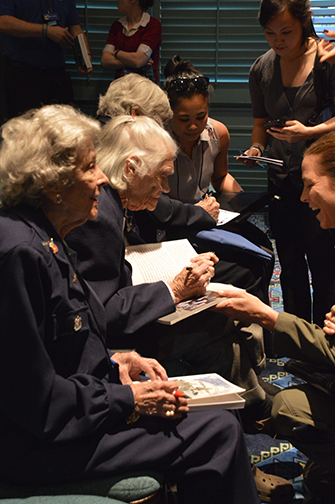
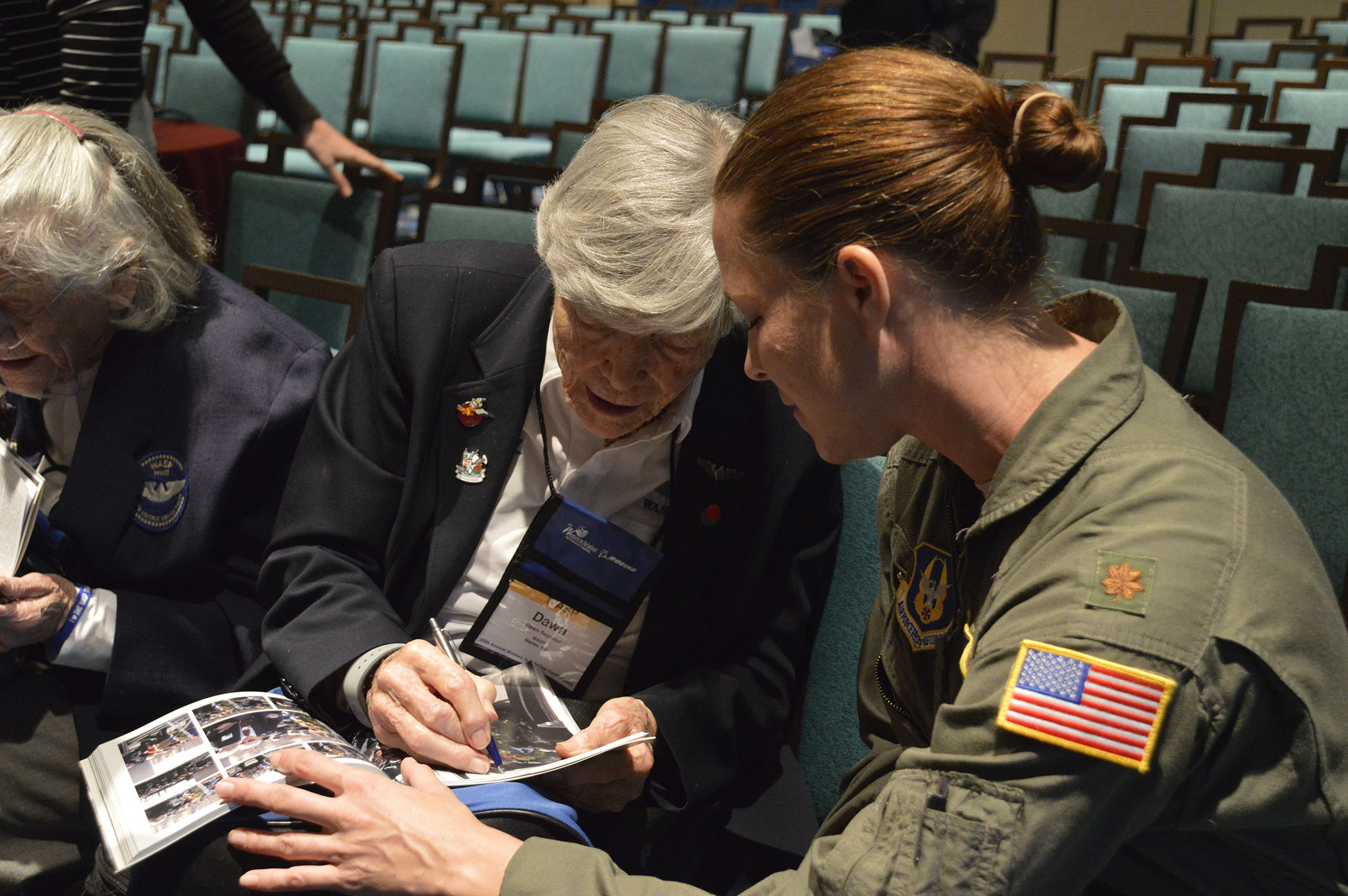
If you’re interested in learning a little more about the 99s, WAI, WASP, or flying opportunities for women in the military, make sure to click some of the links in this blog.
Blue skies,
Sandy

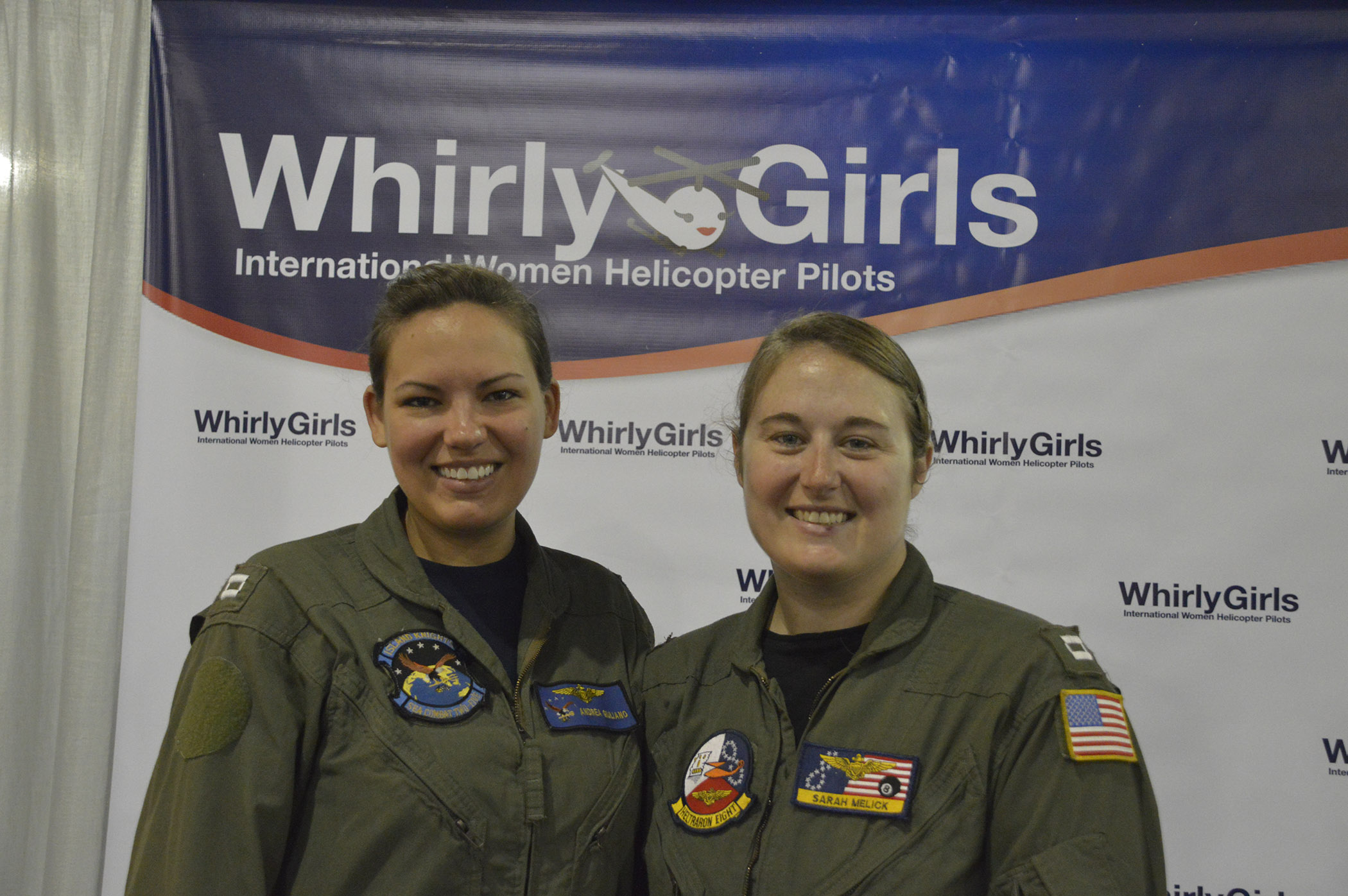
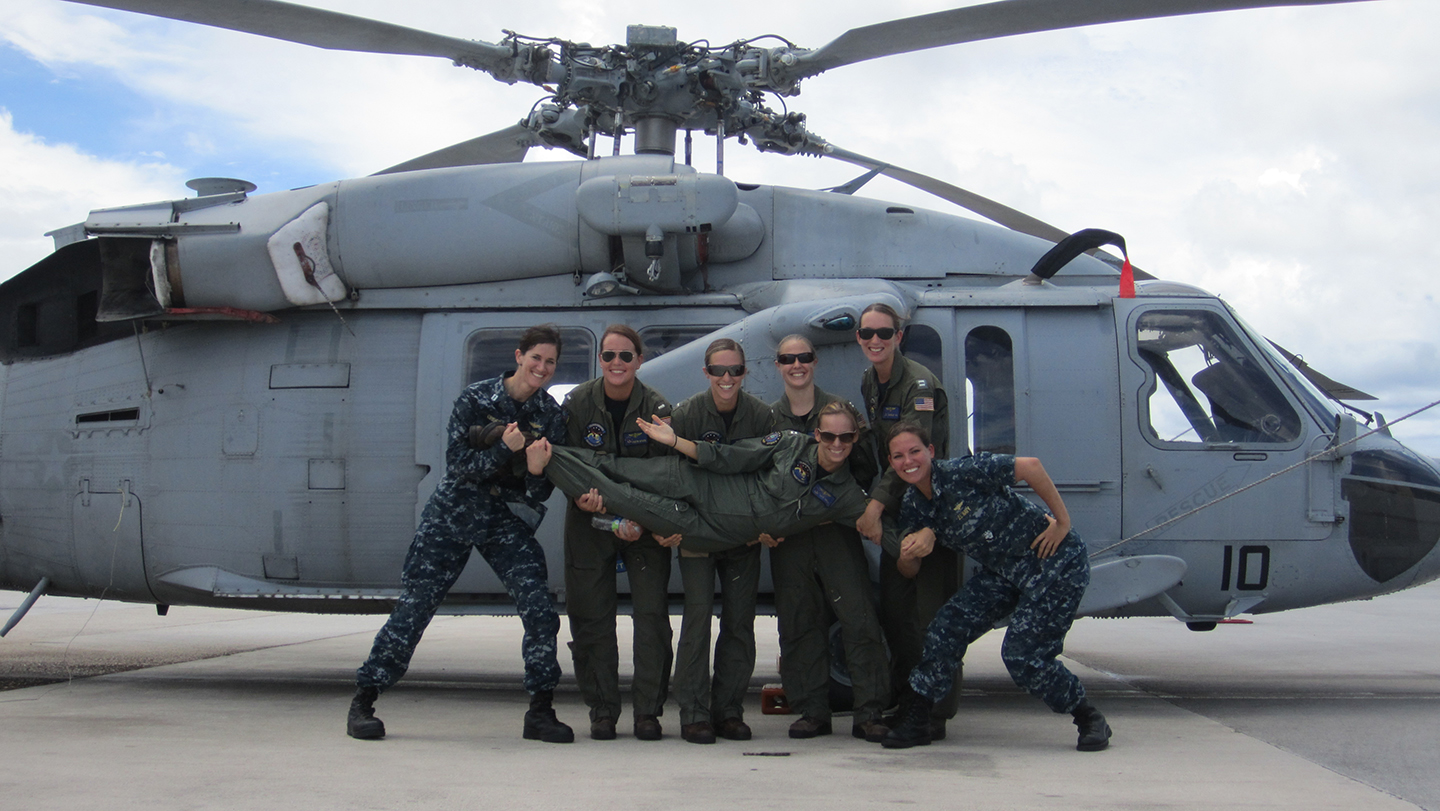
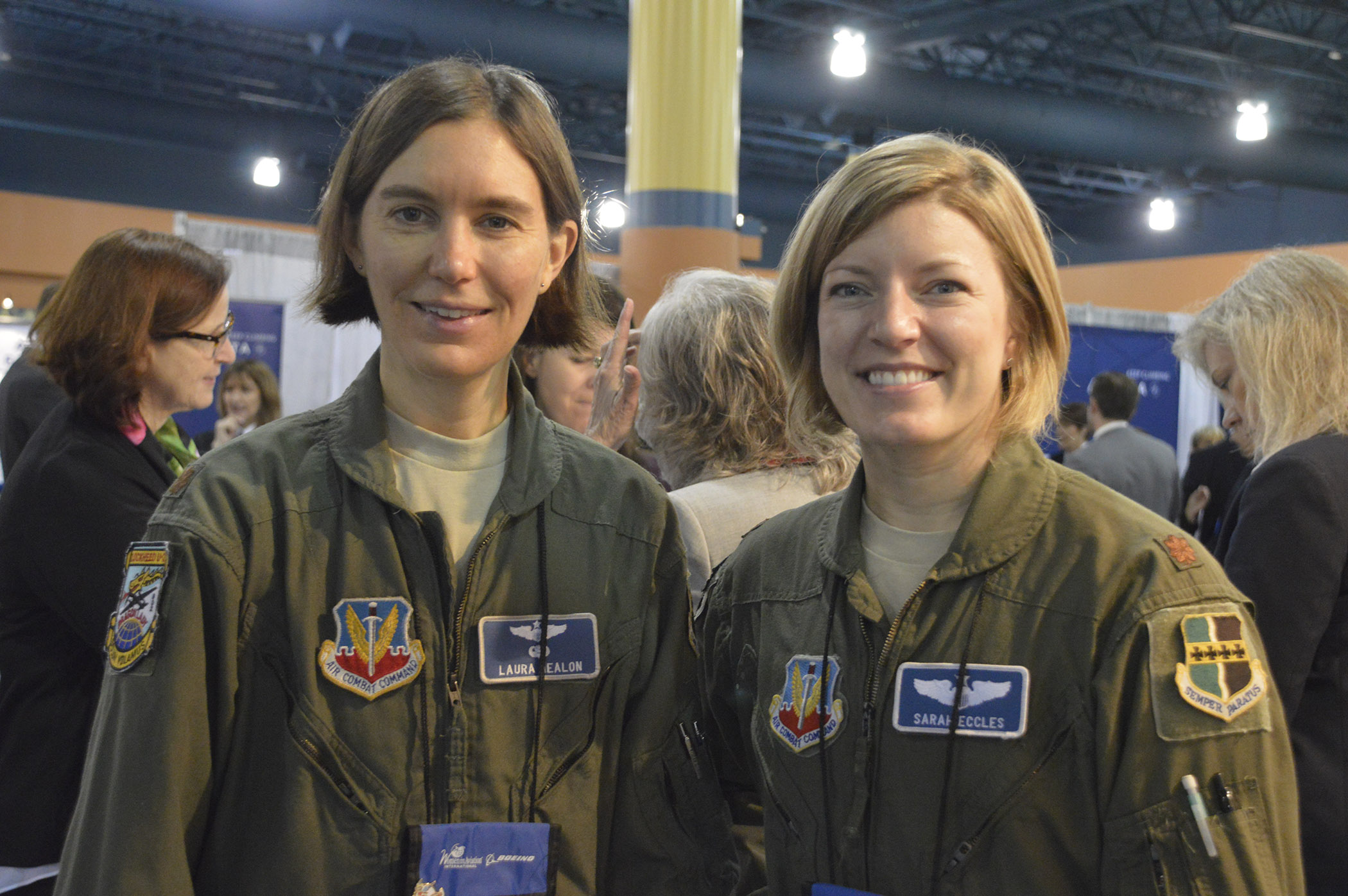
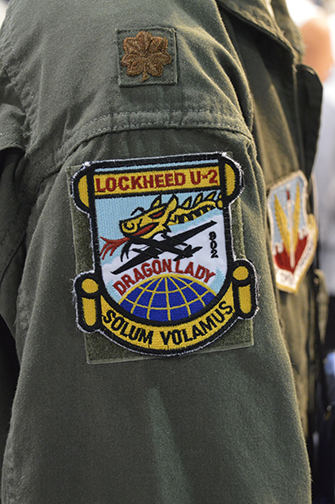
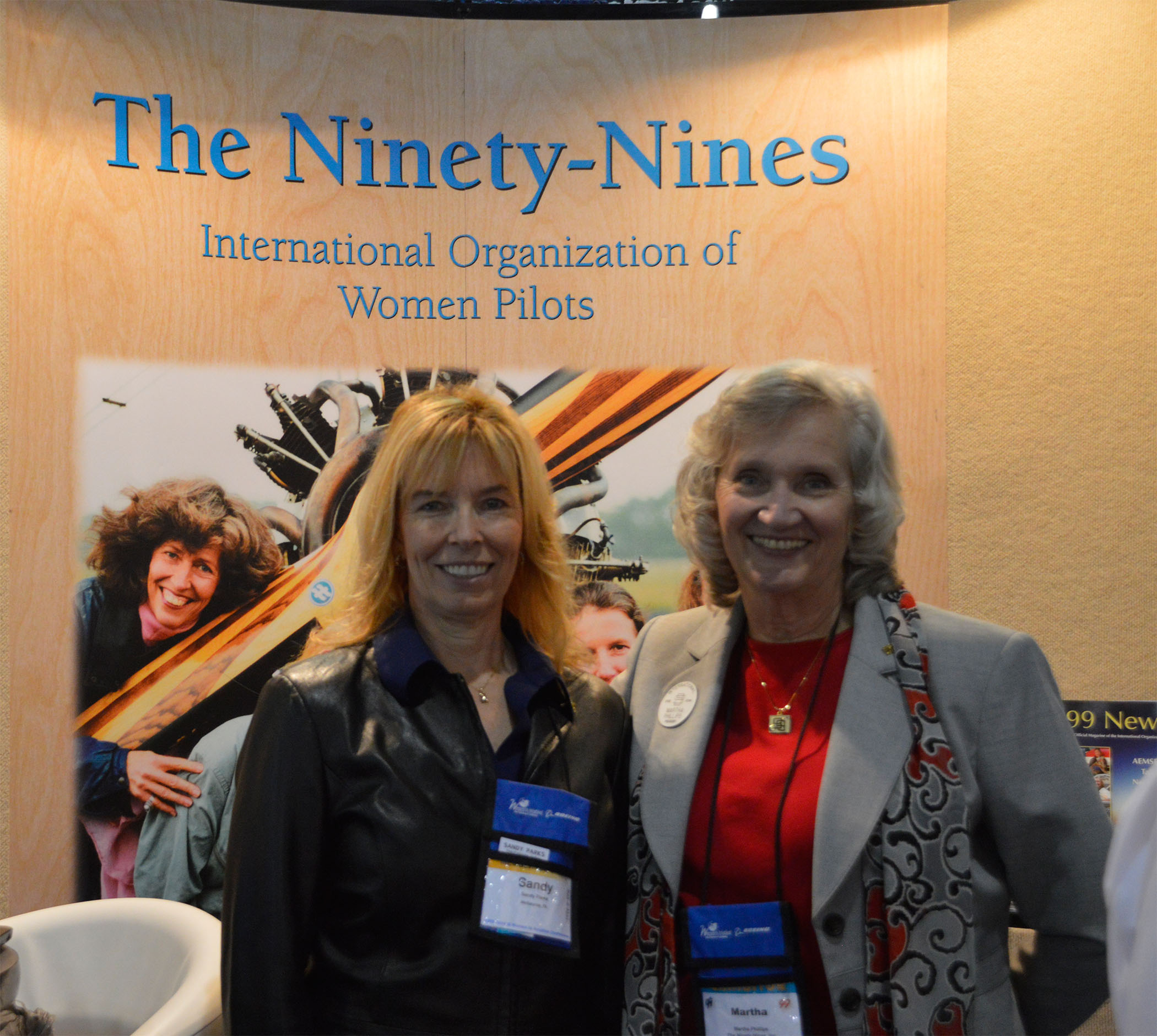
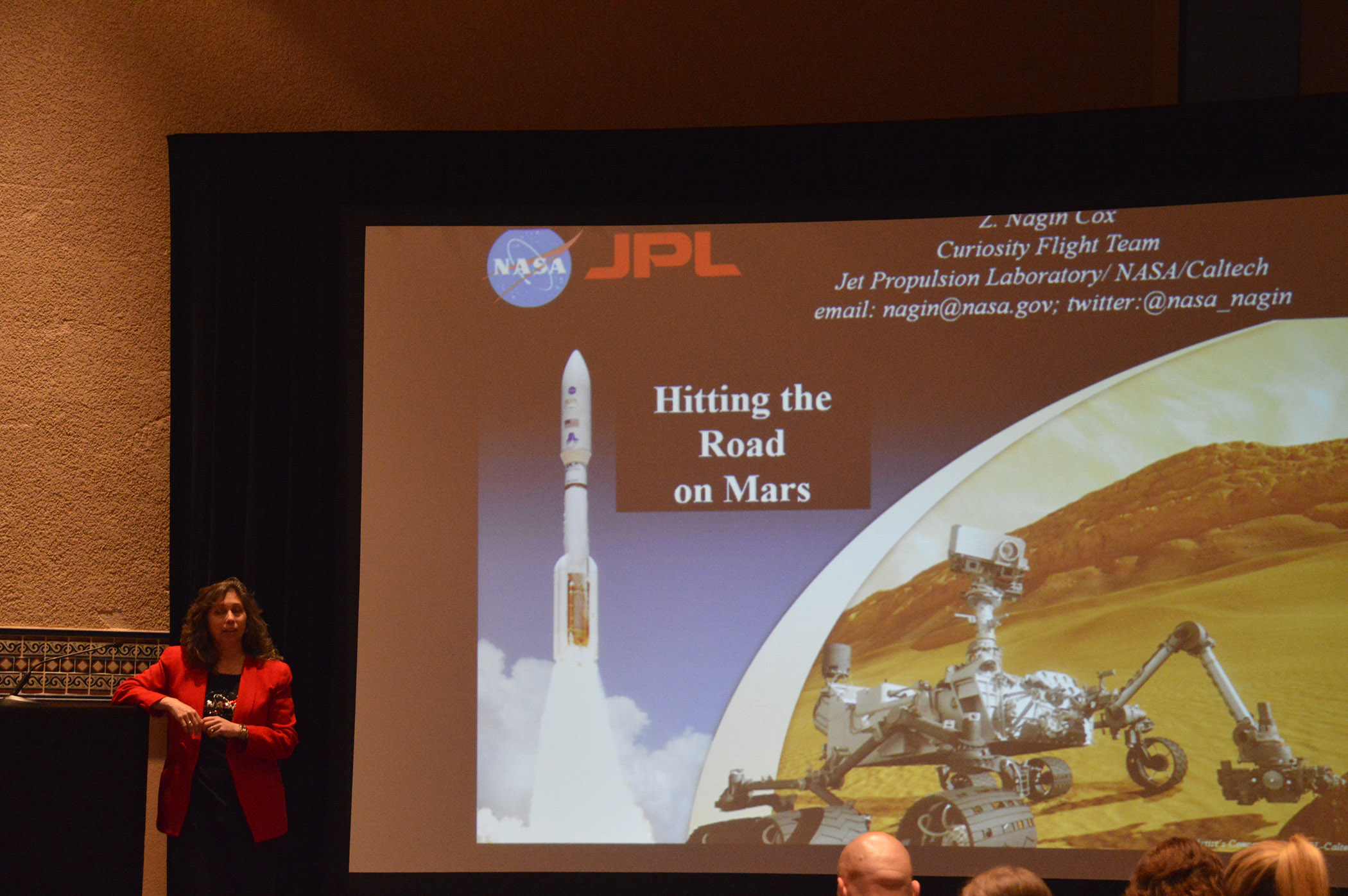
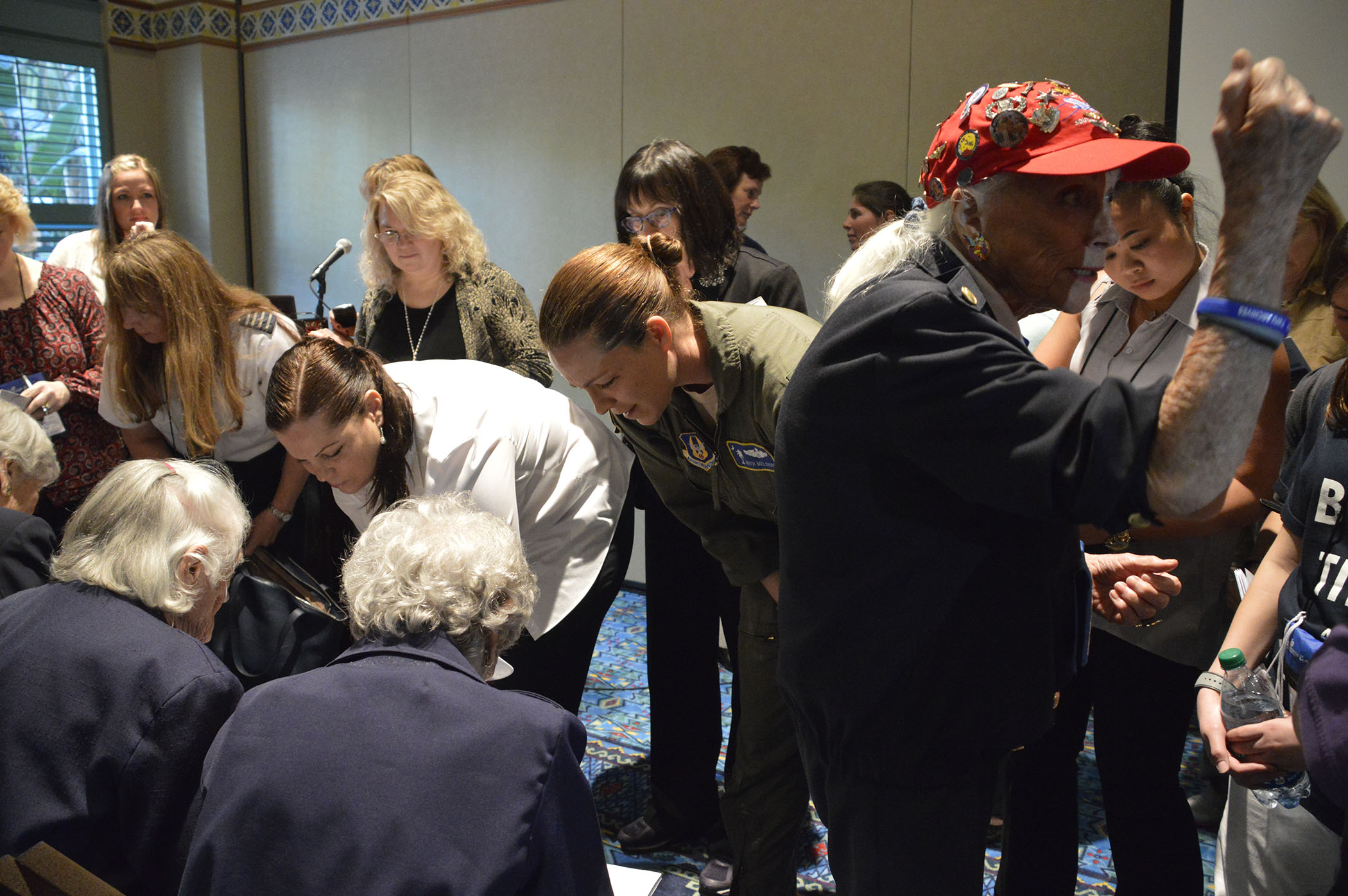
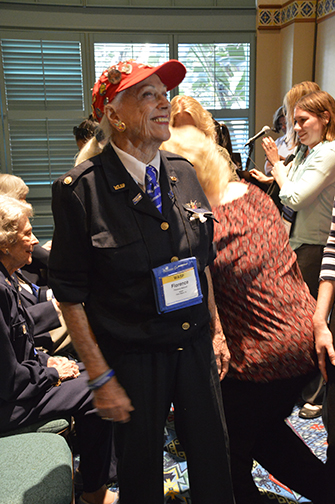
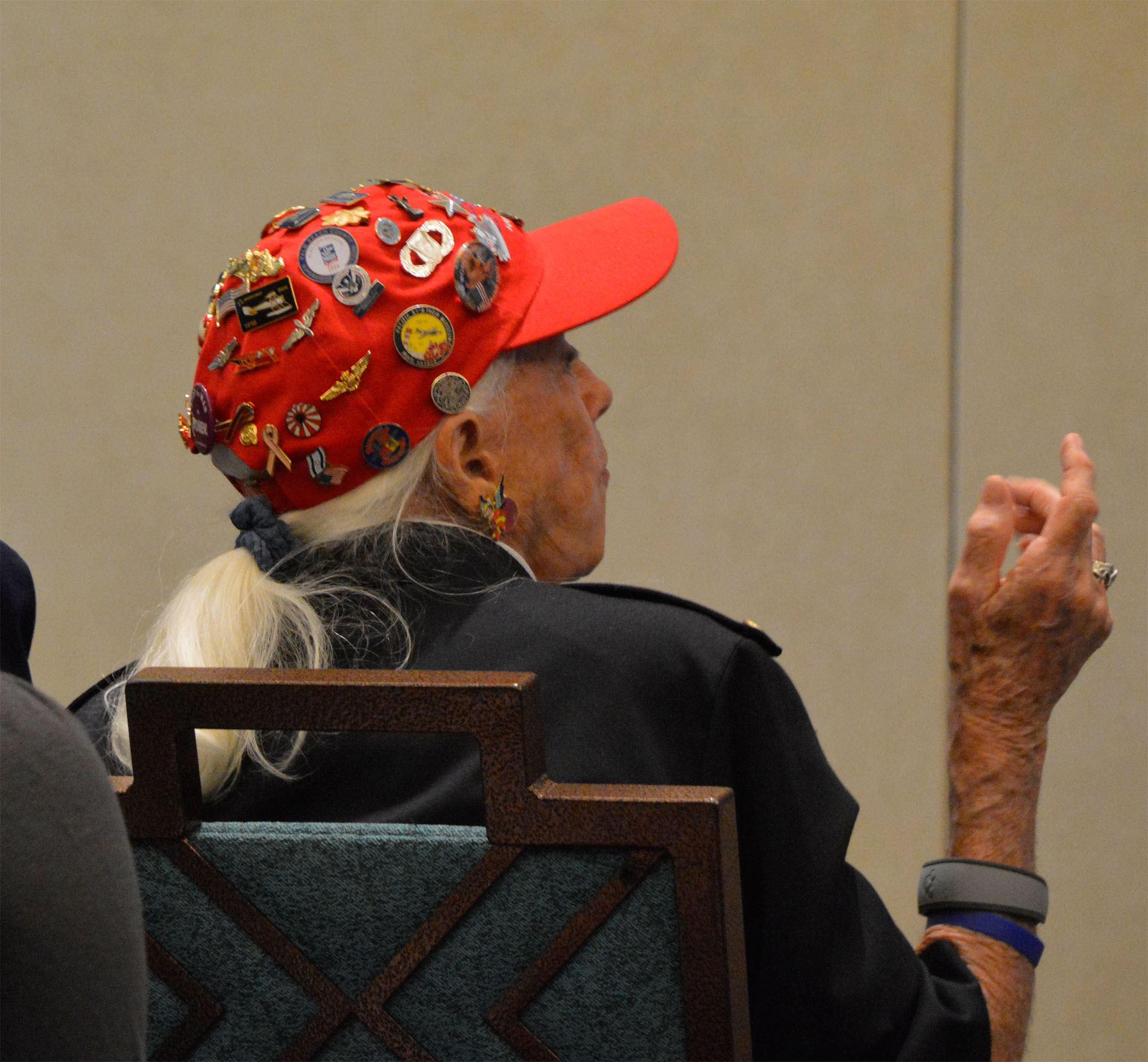
Leave a Reply